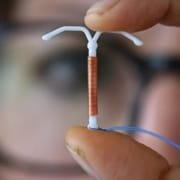Birth Control Pill: Types, Side Effects & Effectiveness
Birth control pills are a popular choice for many people seeking contraception. Choosing the right birth control method is a personal journey that depends on your individual health needs, lifestyle, and preferences. These small but powerful pills, also known as oral contraceptives, are designed to prevent pregnancy by regulating hormones in your body. While the variety of options might seem daunting at first, don’t worry – we can break them down into a few key categories to make your decision easier. Understanding these birth control types, how they work, and their potential side effects will help you navigate your choices and find the option that best suits your needs.
What Are Birth Control Pills?
Birth control pills are medications taken by mouth to prevent pregnancy. They contain synthetic hormones that mimic the natural hormones in your menstrual cycle. The two main hormones involved are estrogen and progesterone. These pills work in several ways to prevent pregnancy:
- Stopping Ovulation: They prevent your ovaries from releasing eggs, which means there’s no egg available for fertilization.
- Thickening Cervical Mucus: The pills make the mucus in your cervix (the lower part of your uterus) thicker, which makes it harder for sperm to reach the uterus.
- Changing the Uterine Lining: Some pills also alter the lining of the uterus, making it less likely for a fertilized egg to implant.
Typically, birth control pills come in a 28-day pack, with one pill to be taken each day. Most packs include 21 active pills (containing hormones) and 7 inactive pills (also called placebo pills), though some variations exist.
Types of Birth Control Pills
There are two main types of birth control pills: combination pills and progestin-only pills. Let’s look at each type in detail.
Combination Pills
Combination pills contain synthetic forms of both estrogen and progesterone (called progestin in its synthetic form). These hormones work together to prevent pregnancy. Combination pills come in several formats:
- Monophasic Pills: Each active pill in the pack contains the same amount of hormones. You may have a period during the last week of the cycle when you’re taking the inactive pills.
- Multiphasic Pills: These pills vary the hormone levels throughout the cycle. Like monophasic pills, they usually have a week of inactive pills.
- Extended-Cycle Pills: These pills are taken for 12 weeks straight, followed by a week of inactive pills. This results in fewer periods – typically only three to four times a year.
Examples of combination pills include:
- Azurette
- Beyaz
- Loestrin
- Yasmin
Potential Benefits of Combination Pills:
- May help with acne
- Can reduce heavy periods and severe menstrual cramps
- May provide protection against certain cancers, such as ovarian and endometrial cancer
Progestin-Only Pills
Progestin-only pills, often called “minipills,” contain only synthetic progesterone and no estrogen. These pills are a good option for people who can’t take estrogen due to health reasons or who are breastfeeding.
Examples of progestin-only pills include:
- Camila
- Nor-QD
- Jencycla
Potential Benefits of Progestin-Only Pills:
- May be safer for those with a history of blood clots
- Suitable for people who smoke
- Can be used while breastfeeding
How Birth Control Pills Work
Understanding how birth control pills work can help you feel more confident in your choice. Let’s break it down for each type:
Combination Pills:
- Prevent Ovulation: By stopping the release of eggs from the ovaries.
- Thicken Cervical Mucus: To make it harder for sperm to reach the uterus.
- Change Uterine Lining: To make it less likely for a fertilized egg to implant.
Progestin-Only Pills:
- Thicken Cervical Mucus: Similar to combination pills.
- Thin Uterine Lining: Reduces the likelihood of implantation.
- May Prevent Ovulation: This doesn’t always happen but can be an additional way these pills prevent pregnancy.
Usage and Effectiveness
For both types of pills, correct and consistent use is key to their effectiveness. Let’s look at how to use each type and how effective they are:
Combination Pills:
- Take one pill daily, ideally at the same time each day.
- If you start within 5 days of your period, you’re protected immediately. Otherwise, use additional contraception for the first 7 days.
- With typical use, combination pills are about 91% effective. This means that out of 100 people using these pills, about 9 may become pregnant in a year.
Progestin-Only Pills:
- Take one pill daily at the same time each day. It’s crucial to take these pills at the same time every day.
- Protection begins after taking 2 consecutive pills within 48 hours. Use a backup method if you don’t take the pills on time.
- Like combination pills, progestin-only pills are about 91% effective with typical use.
Important Notes:
- Certain medications and health conditions can affect how well the pills work. Always tell your healthcare provider about any medications you’re taking.
- Always consult with a healthcare provider to ensure the chosen method is appropriate for your health and lifestyle.
Pros and Cons of Birth Control Pills
As with any medication, birth control pills have both advantages and disadvantages. Let’s explore these:
Pros:
- Highly effective at preventing pregnancy when used correctly
- Can regulate menstrual cycles and make periods lighter and less painful
- Reversible: Your fertility returns quickly after you stop taking the pills
- May improve acne and reduce the risk of certain cancers
Cons:
- Do not protect against sexually transmitted infections (STIs)
- Require daily adherence – missing pills can increase the risk of pregnancy
- Possible side effects, which we’ll discuss in more detail later
- May interact with certain medications
What to Do If You Miss a Pill
Even with the best intentions, you might forget to take a pill. Here’s what to do if that happens:
For Combination Pills
- If you miss 1 pill: Take it as soon as you remember, even if it means taking 2 pills in one day. No additional contraception is needed unless you missed it during the first or last week of the cycle.
- If you miss 2 or more pills: Take the most recent missed pill as soon as possible. Use backup contraception (like condoms) for 7 days or until you’ve taken 7 consecutive active pills.
For Progestin-Only Pills
- If you miss 1 pill: Take it as soon as possible. Use backup contraception if you had unprotected sex within the past 5 days.
- If you miss 2 or more pills: Take the most recent missed pill and use backup contraception until you’ve taken 2 consecutive pills.
Birth Control Pills Side Effects
Like all medications, birth control pills can have side effects. It’s important to be aware of these, but remember that not everyone experiences side effects, and many side effects improve after the first few months of use.
Common Side Effects
- Nausea
- Headaches
- Spotting between periods
- Breast tenderness
- Mood changes
Serious Risks
While rare, birth control pills can increase the risk of blood clots, which can lead to conditions such as:
- Deep vein thrombosis (a blood clot in a deep vein, usually in the leg)
- Heart attack
- Stroke
- Pulmonary embolism (a blood clot in the lung)
The overall risk is low but higher in certain groups, such as:
- People with high blood pressure
- Smokers, especially those over 35
- Those on prolonged bed rest (like after surgery)
It’s crucial to discuss your personal and family medical history with your healthcare provider to assess your individual risk.
How do I get Birth Control Pills
You can obtain birth control pills through various channels:
- In-Person Visit: Schedule an appointment with a healthcare provider to discuss your options and receive a prescription.
- Telehealth Services: Online platforms like Nurx, Lemonaid, and The Pill Club offer virtual consultations and prescriptions. These can be convenient options, especially if you have limited access to in-person healthcare.
Remember, while these services can be convenient, it’s still important to have regular check-ups with a healthcare provider to monitor your health and discuss any concerns.
Frequently Asked Questions
Does Birth Control Cause Weight Gain?
There is no strong scientific evidence linking birth control pills directly to weight gain. Some people might experience temporary water retention or slight weight fluctuations, but significant weight gain is not a common side effect. If you’re concerned about weight changes, talk to your healthcare provider.
What About Birth Control for Teenagers?
In many places, teenagers can access birth control without parental permission. Birth control can be safe and effective for teenagers, but it’s important to consult with a healthcare provider to discuss individual needs and any potential risks. If you’re a teenager considering birth control, don’t hesitate to reach out to a trusted healthcare provider or a local family planning clinic.
How Do Birth Control Pills Compare to IUDs?
Both birth control pills and IUDs (Intrauterine Devices) are effective methods of contraception, but they work differently:
- Pills are taken daily and can be stopped at any time.
- IUDs are long-term methods that can last for several years.
- IUDs are slightly more effective than pills because there’s less room for user error.
- Some people prefer IUDs because they don’t have to remember to take a daily pill.
The best method depends on your individual needs and preferences. Consult with a healthcare provider to determine which option might be best for you.
Can I Skip My Period Using Birth Control Pills?
Yes, it’s possible and safe to skip periods using certain types of birth control pills. This is typically done with monophasic combination pills by skipping the inactive pills and starting a new pack immediately. However, always consult with your healthcare provider before changing how you take your pills.
Do Birth Control Pills Protect Against STIs?
No, birth control pills do not protect against sexually transmitted infections (STIs). If you need protection against STIs, consider using condoms in addition to your birth control pills.
Can I Get Pregnant Right After Stopping Birth Control Pills?
Yes, it’s possible to get pregnant as soon as you stop taking birth control pills. Your fertility typically returns quickly after stopping the pill. If you don’t want to get pregnant, make sure to use another form of contraception as soon as you stop taking the pills.
Making Your Decision
Choosing whether to use birth control pills, and which type to use, is a personal decision that should be made in consultation with a healthcare provider. Here are some factors to consider:
- Your overall health and any existing medical conditions
- Your lifestyle and ability to remember daily medication
- Your plans for future pregnancies
- Your comfort level with the potential side effects
- Other benefits you might want from your birth control (like lighter periods or clearer skin)
Remember, what works best for one person might not be the best choice for another. It’s okay to try different methods until you find the one that works best for you.
Conclusion
Birth control pills are a highly effective method of preventing pregnancy when used correctly. They offer a range of benefits beyond contraception, from regulating periods to improving acne. However, like all medications, they come with potential risks and side effects.
By understanding how birth control pills work, their different types, and how to use them effectively, you can make an informed decision about whether they’re the right choice for you. Always consult with a healthcare provider to discuss your individual needs and any concerns you might have.
Remember, your reproductive health is an important part of your overall well-being. Don’t hesitate to ask questions, seek information, and advocate for your health needs. With the right information and support, you can find a birth control method that fits your life and helps you achieve your health goals.










